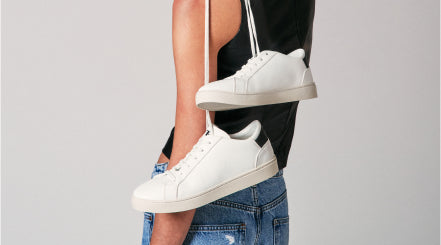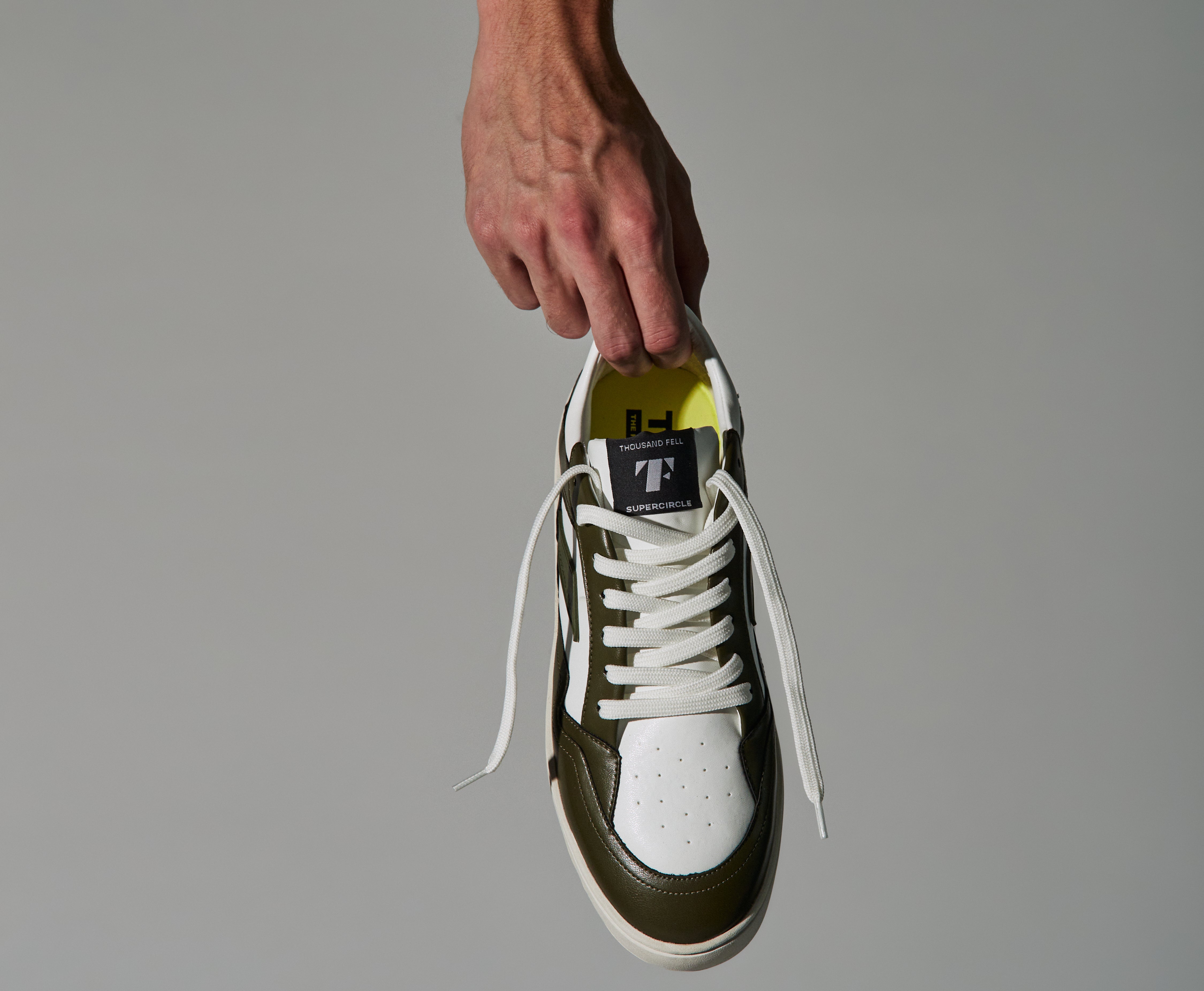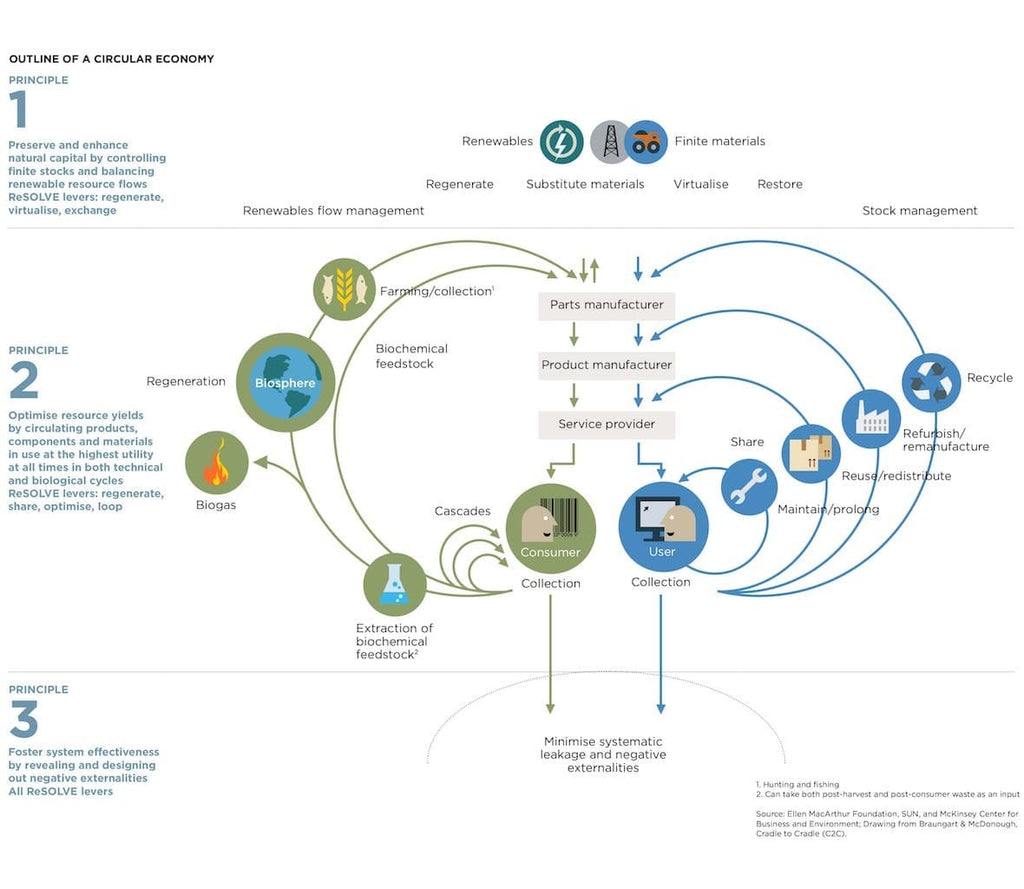Journalist & Director Sophia Li brings a refreshingly approachable and inspiring voice to the sustainability movement. She helps us break down what the Circular Economy is, how the fashion industry can do better, and a few ways all can do our part to live life more sustainably.
The Sustainability Spectrum
Sophia Li’s sustainability journey has been years in the making. In conversation with the journalist and director, Thousand Fell co-founder Chloe was able to glean insight into how she walks the walk.
“Everyone is on their own sustainability journey” is the very first thing Sophia explains. She disagrees with the shaming and cancel culture that often lead conversations relating to living sustainably. People come from different backgrounds and cultures, and as long as you are on a journey that’s all that matters.
It’s about small, simple steps. But where is the first step? For Sophia, she asks viewers about to place themselves on a sustainability spectrum. On one end is the ‘Greta Spectrum’, referring to living a Greta Thunberg-esque lifestyle. Activities include avoiding planes and attending protests instead of school. And then on the opposite end is Steve Bannon, who isn’t a believer of climate change. Everyone, according to Sophia, falls in the middle. It’s okay if you’re not a Greta.
Sophia’s journey began at school where as a journalism major she took an internship in trend forecasting. Her work led her to Fashionista and then to Vogue (when they only owned the URL link to vogue.com, and had not even created the website!). Working her way up, she saw the team grow from five to fifty also helped solidify the Vogue Digital Voice.
But she wanted more. Her sustainable roots were sowed in China, where she visited every summer as a child. The pollution there was a wake up call. Blue skies began to be celebrated for how rare they were. She realised it would be our future soon if people didn’t start taking action.
What is sustainability?
The transition from high fashion at Vogue to sustainability journalism began when she realised that the thirst for sustainability was lacking in the fashion world. It was loosely touched upon, and never given the spotlight. But overnight, it became a buzzword. And it had her thinking- what does sustainability even represent?
Does it mean environmentalism? Green? Organic? Are these interchangeable? She began breaking these down. Terminology became key to the sustainability movement and how she made sense of the space.
According to her, sustainability on a macro level is a lifestyle and each action has a reaction. This exists on an individual level and a business level. In the fashion industry, sustainability is three different things-
- Materials.
- Fair trade and fair prices.
- Philanthropy.
What about zero waste and circularity prompts Chloe? Sophia’s view is spiritual. Humans can’t be 100% zero waste. We are alive, and we have a carbon footprint. The intention to be zero waste exists though. Circularity is designing without waste. For her, it's a ‘slinky’. It’s not a perfect circle every time.
The Ellen Macarthur Foundation describes it as a butterfly, adds Chloe. While achieving circularity always requires constant innovation and new inputs, what matters is that we aren’t sending toxins into the environment. Consistent choices are key.
source: The Ellen MacArthur FoundationCircularity in the age of content pollution
Where do things go once you’re done with them? Often, we realise that the end of life process begins in our own communities. Coming from an Asian heritage, Sophia knows well how her culture prioritises low waste and reuse by repurposing food packaging and containers to store different objects or food items. Ice cream bins were reused for toy sets! That thought process was the norm in Sophia’s family, and it clearly had a lasting impact on her.
When Sophia left Vogue, she wanted to redefine what it meant to be a journalist. This attempt at redefinition can be translated to the state of flux we are all in right now. With our fleeting titles and changing perspectives, we are all in the process of redefining ourselves. Now, how Sophia is choosing to redefine herself is her motto to create and promote conscious content. This comes from a heightened awareness about the age of content pollution we are entrenched in. The inundation affects us psychologically.
Meaningful stories come from being intentional about the content that is produced. Sophia does that by pushing the needle forward in her own ways. How do we lean in in ways that are value add? Brands today can push policies and they can push consumers who can push policies. So by working with mission driven brands, Sophia is able to orient herself towards her mission of creating conscious content.
The intersection between personal and professional
Sophia’s ability to channel her thoughts on matters relating to sustainability coincides with the way she leads her personal life too. Shifting behaviors to become more sustainable can often be thought of as sacrificial. But psychologically, living sustainably isn’t a sacrifice for her. It’s an asset. It helps her be in touch with herself and allows her to check in with her personal values.
Being in tune with nature, yourself and the planety you want to live in leads the way to valuing a life that is focussed on well-being. And according to Sophia, wellbeing of the planet directly translates to the wellbeing of humanity.
The link between mental health and sustainable action is often termed as ‘eco-grief’. 70-80% of kids in high school struggle with it. What is going to happen to the planet in the future? These fears echo in younger generations.
We only have to look towards Casper, the mattress company, and how they are disrupting ‘sleep’. It’s a polluted and convoluted category, much like sustainability. To achieve healthy sleep, we are inundated with directions to turn phones off before sleeping, to drink turmeric lattes for optimal health, to not eat a few hours before bed etc. The laundry list goes on and ultimately ends up having its opposite effect.
This anecdote plays into a larger conversation about the prevalence of consumers to get overwhelmed with constant directions to lead a certain type of lifestyle. Within sustainability, that’s across food, transportation and shopping. There needs to be progress made to streamline this conversation, and Thousand Fell hopes to lead this charge.
Is the fashion industry a hot potato?
It circles back to content pollution. What if we switched perspectives? Instead of placing pressure on consumers, can we place it on brands instead? Brands end up playing ‘hot potato’ with consumers by marking down clothing. Consumers end up buying fast fashion items at discounted rates, and donating them at the end of their very short life cycles. This is how the cycle perpetuates, wherein the responsibility is passed from one to the other. There is an immense need for a call to action to all brands to take equal responsibility.
Some ways in which fashion companies pass down this baton is through their reliance on donation and markdown models. By creating excess inventory that big retailers don’t need, especially given the pandemic, there are now genuine fears of it being burnt instead. Wouldn’t it be better to design consciously from the outset? Donations in the shoe industry is another problem seldom addressed. Being intimate items, over 85% go straight to landfill. They rarely get to a second user.
The problem with landfills in the US is that because they are compacted tightly, biodegradable items like banana peels cannot break down. Trash excavators have become in charge of going through them and pulling out items for decomposition. In NYC, we have been able to save 100 million pounds of food scraps from landfills that went into composts. Landfills also emit methane gas, which is contributing to global warming! Everything is interconnected.
How did Sophia become a public facing advocate? “Through immense transparency”, comments Sophia. She never represented herself as a perfect environmental individual who is living her life according to tight standards. She is not a Greta, nor a Steve Bannon. And much like everyone else, she lies in the middle of the sustainability spectrum. This approach to sharing her life in an honest way enabled her to find a voice authentic to the values she believes in. And as she delved deeper into this journey and overcame the initial (and hardest) transition, she realised it had become a natural part of her lifestyle.
For Sophia, her personal lifestyle was spearheaded by changes that came extremely slowly. She tries not to use single-use plastic and avoids takeout. Supporting small businesses can be done by bringing reusable containers. She rides her bike everywhere- even to fashion week (with heels on). She tries to stick to a plant based diet. She is growing her own scallions (s/o TikTok trends!). Local composting and community gardens are accessible in cities like New York if you can’t grow them at home. Breanne Delgado, co-founder of the Women’s March (@bybreanne) is amazing to follow for inspiration! And finally, there are always local options. Common Ground Compost in Brooklyn, NY is one of many.
For Chloe, her California childhood was characterised by growing her own plants, or eating grass-fed meat. She faced difficulties while traveling internationally, but that only strengthened her belief in sticking to her commitment to lead a low waste lifestyle, even if that was only 80% of the time.
What can you do?
So how can others begin to lean into these practices? If you have sustainability oriented friends, talk to them, Sophia advises. Learn from them and have them humanise sustainability for you. It’s her secret gateway sustainability hack. Beyond personal resources, educational ones like Slow Factory offers courses like ‘Sustainable Literacy’ that give a really good background. It’s accessible, personable and champions social education. Another great project is Lonely Whale. Her general overview is to learn what is interesting to you- whether that is ocean, food or fashion activism. Anna Sacks of The Trashwalker on Instagram, for example, helps followers learn more about the ins and outs of which corporations to support. And if you are that sustainable friend yourself, begin talking about active changes you are making to your lifestyle. We need to make sustainability exciting and approachable!
One of Sophia’s favorite quotes about sustainability is- “Every time you purchase something, you cast a vote for the world you want to live in”. A plastic bottle purchase has strong repercussions in pushing a narrative forward that is okay with having them live forever in the world. A reusable bottle, on the other hand, showcases a stance against this.
Consumerism is everywhere, and we are too desensitized to it. This pandemic has made us all introspect. Trips to grocery stores take longer. So we are buying less. And there is hope that this intentional consumerism has lasting effects.
Sustainability and Fashion - can they coexist?
When it comes to fashion, the last thing Sophia wanted to do was purchase more clothing while being an editor at Vogue. So she stopped buying them altogether. Now, she buys clothes that are only sustainably made. When she is travelling, she supports small businesses and independent designers. An app she uses often is Wardrobe (@wear.wardrobe) which allows her to rent from closets. She is also a big believer in reselling the clothes she cannot personally rent herself.
For Sophia, there is an urgent need to address textile wastes in landfills in developing countries like Ghana where most of our donated clothes end up. So being conscious about selecting outlets for donations is something to consider. She likes Housing Works that helps to provide and create jobs in local communities in New York. When it comes to donating shoes, Chloe recommends Soles4Souls who donate shoes to entrepreneurs in other countries. They in turn help setup second hand markets in their local economies.
In cases of intimate products like underwear, Sophia also tries to champion other circular brands like Knickey that allow customers to send in underwear for textile recycling. “Find brands that you like that have a fair price for what they are offering, and support them at full price!”, adds Chloe. That is how we will be able to take steps towards resetting the markdown attitude that is weighing on the fashion industry today.



